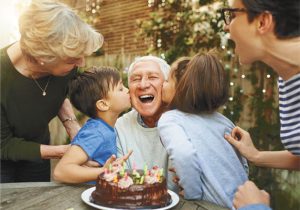Columbus sailed the ocean blue in 1492.
 It’s hard to repeat that sentence without the melodic tune echoing in your head. In elementary school, we all learned about Christopher Columbus’s famous expeditions in which he was given credit for “discovering” America. Columbus led four voyages across the Atlantic Ocean. How did he know, or not know, where to sail? He used navigation. Navigation is defined as “the process or activity of accurately ascertaining one’s position and planning and following a route”. Prior to electronic navigation gadgets which currently fill our pockets men dedicated their lives to study and understand the land and water using paper maps and compasses.
It’s hard to repeat that sentence without the melodic tune echoing in your head. In elementary school, we all learned about Christopher Columbus’s famous expeditions in which he was given credit for “discovering” America. Columbus led four voyages across the Atlantic Ocean. How did he know, or not know, where to sail? He used navigation. Navigation is defined as “the process or activity of accurately ascertaining one’s position and planning and following a route”. Prior to electronic navigation gadgets which currently fill our pockets men dedicated their lives to study and understand the land and water using paper maps and compasses.
Compared to breast cancer survivors, Columbus had it easy. Navigating the breast cancer journey is challenging. Behind every breast cancer survivor, you will likely find a strong support system that stood by her during some of the most difficult periods of her life. Friends and family members often join the navigation effort armed with internet searches, meals prepared with love, rides to appointments, and shoulders to cry on. These caregivers help survivors regain a sense of normalcy, provide emotional stability, and even improve the chances of a better outcome.
November is the month in which we recognize and honor family members and caregivers across the country. National Family Caregivers Month provides an opportunity to not only celebrate these treasured individuals, but to also educate communities, raise awareness of issues caregivers may face and increase support for the caregivers. The role of a supportive caregiver is one of the most important components for the emotional recovery of a breast cancer patient. Without these individuals, many cancer survivors would feel lost.
However, being a caregiver isn’t without its own challenges. While being a caregiver can be incredibly fulfilling, it can also be stressful and cause fatigue and feelings of guilt. It can be overwhelming to work to find a balance between your own needs and the needs of a loved one with cancer. Often the individual’s role is redefined when becoming a caregiver. It is important for the caregiver to remember to also care for themselves.
If you don’t take care of yourself, you won’t be able to take care of others. It is ok to ask for help!
In 1971, President Richard Nixon declared a “war on cancer” by signing the Cancer Act. Almost 20 years later, Dr. Harold Freeman started a navigation program that identified barriers to timely care. Through navigation, Freeman was able to identify potential barriers that might delay or prevent a woman from accessing proper care. Recognizing the importance of navigation, President George H. Bush signed into law the “Patient Navigator and Chronic Disease Prevention Act”. This public law allowed federal grants to be used to develop and provide navigation programs.
During Columbus’ journeys, he likely encountered some dangerous conditions. Bad weather, disease, and financial constraints threatened his success. In order to complete his journey, he had to overcome these barriers. Breast cancer survivors face barriers and nurse navigators are trained to understand, identify, and eliminate these barriers. Nurse navigators coordinate timely movement through the multiple steps in the survivorship journey. If you or a loved one are navigating through cancer, reach out to find a nurse navigator to join your team. Remember that it is ok to receive assistance from others that are willing to help.
Find resources within the community and become informed. Feeling informed can help alleviate uncertainties and worry.
We want to say thank you to all the unsung heroes that can be found behind every breast cancer survivor for the selfless support that you provide. Your willingness to put others’ needs before your own is an irreplaceable gift.
Sharla Gayle Patterson, MD, MBA
Board Certified Breast Surgical Oncologist
Sharla Gayle Patterson is a fellowship trained breast surgeon certified by the American Board of Surgery. She is the only surgeon in South West Florida certified by the American Society of Breast Surgeons in both ultrasound and stereotactic guided breast biopsies. For more than a decade, she has worked diligently to educate the world around her about what can be done to decrease a person’s risk for breast cancer. Magnolia Breast Center serves as the first comprehensive breast health program in Southwest Florida. Her dedication to providing the highest level of surgical care is manifest in her successful certification in oncoplastic breast surgery by the worldwide known School of Oncoplastic Surgery. Her passion does not end with surgery, as many of her patients will attest – she continues to address the importance of survivorship and has built the area’s first and only multidisciplinary breast cancer survivorship clinic.
At home, Dr. Patterson enjoys spending time with her husband and three daughters. Glitter, glue, and grit make up her secret recipe for family harmony.
Magnolia Breast Center serves as the first comprehensive breast health program in Southwest Florida.
Magnolia Breast Center
3530 Kraft Rd, Suite 202, Naples, FL 34105
239.758.PINK (7465)
magnoliabc.com









